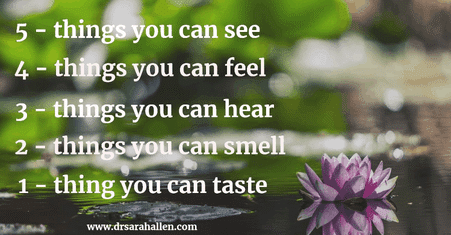Considerations for a positive birth after sexual violence or abuse
Tamsin Bicknell-Morel
Consultant midwife in Public health and Safeguarding
@tamsin_bicknell
Reading this article has the potential to be upsetting in itself, if you are a survivor. We would recommend reading when you are in a safe, calm physical and emotional space. It would also be good to ensure to plan some strategies for after you finish reading; perhaps some time to digest what you have read and your thoughts about it, and/or a trusted person to be with you. Most importantly: be gentle with yourself.
Summary
Birth and the early postnatal period can be difficult if you are a survivor of sexual violence or abuse. In this article we discuss things to think about to help you plan for and experience a birth that is as positive, empowering and healing as possible.
Considerations
Below is a list of things for you to think about in relation to your birth experience as a survivor of trauma or abuse. The aim is for you to feel safe and empowered during your birth, and we know that can sometimes be harder when you have experienced these abuses. Considering the following factors – which may not all be relevant to you – and how you can change, mitigate or eliminate those factors may help you feel more in control and, we hope, allow you to have a more positive experience of your baby’s birth.
Identifying things that might ‘trigger’ you can be very useful, as you can then try to find ways of reducing the risk of this happening. Being ‘triggered’ is when an external stimulus causes you to remember the trauma you have previously experienced and become distressed.1
Some people who have experienced trauma of any kind develop a coping mechanism known as ‘dissociation’. This means that that if they feel scared or threatened they may start to feel ‘separated’ or ‘outside’ from their body, or may go into a state where they are not really aware of what is happening in the moment.2 This is a very clever way that your body and mind try to protect themselves, but during labour you may feel like you want to be more aware of what is happening and so this can be hard.
Others may experience what are called ‘flashbacks’. This is where something causes you to remember a very upsetting event or experience very vividly and suddenly, as if it happening again1. Flashbacks can be extremely distressing.
Consider whether there is anything that may trigger you to become distressed, have flashbacks or dissociate. The list below has some suggestions:
- Positions: for example, would lying on your back be problematic? There will be alternative options for most procedures or examinations; you can discuss this with your caregiver (e.g. lying on your side). Also consider other people’s positions: do you need people to speak to you on the same level wherever you are, rather than talking downwards to you (say if you were lying down and they were standing)? Or perhaps you need people to try to avoid doing things from behind you.
- Nakedness: will being exposed make you feel vulnerable? You don’t need to be completely undressed when you are labouring and birthing. You could wear a light nightdress or long top, a bikini top, and some people find a long skirt works well. You can wear any of the above in the pool if you are planning on using hydrotherapy. As long as your baby is able come out to meet you from under it, anything goes.
- Phrases or words: is there anything in particular that it would be upsetting for you to hear a caregiver say?
- Particular places being touched on your body: remember, you do not have to have any examinations or procedures that you do not want – you are within your rights to decline and to ask your caregiver to give you different options for your care)
- Particular types of touch: for example, firm, soft, stroking, or massaging might be comforting or could be triggering. Some people do find they experience touch differently when in labour so make sure you let your caregiver and birth partner(s) know what works and what doesn’t.
- Smells: scent is powerfully linked with memory3, particularly traumatic ones. If this is the case for you, you could bring something with you that has a scent that you enjoy instead; be mindful to check safety if you choose an essential oil, as some can affect labour.
- Environment: consider lighting; most birthing rooms have dimmable lights so that you can have soft lighting, others may prefer to keep things a little brighter. It is likely to be helpful to view the maternity unit, even if you plan to birth at home, as then you will be familiar even if for some reason you need to transfer in. Many units have video tours if they aren’t able to show you around in person.
Extra support
It may be worth exploring some relaxation apps on your phone4, a playlist of soothing music tracks or a CD that you can listen to that will relax you. You are welcome to bring a speaker in to hospital with you to listen to, or some may provide these.
Grounding techniques are a type of relaxation tool that can help you come back to yourself if you get very anxious or dissociate. Here is an example that your birth partner could prompt you to do5:
Have you thought about where you would like to give birth? If there are no complications with your pregnancy, you might find a homebirth reassuring. This is a familiar environment where you are likely to feel safe. Others may feel better in the birth centre or may need the care offered in the delivery suite. It’s up to you (although your caregivers may have recommendations for you based on other factors; ultimately this is your decision).
Who will be your birth partner? Do they make you feel relaxed, or will you be worrying about them? Do they know about the abuse you have survived? It may be helpful to have someone there who can help your caregivers follow your birth preferences as much as possible, and remind them if they go off course. Is your birth partner aware of the types of touch you are able to tolerate or not?
Before your baby is born, it can be helpful for some women to seek out some positive birth stories from other women. It is natural to be anxious, especially if it is your first baby, so sometimes hearing from women who have enjoyed their experience can be empowering.
How will you give birth? Again, you have options. Most people will choose to wait for their labour to start naturally, but some may be so worried that they would prefer to have an elective caesarean section.
Some women may prefer to know the date they will go into labour (as you would when having an elective caesarean) but choose instead to have an induction of labour (when we use medication and other techniques to try to kick-start labour).
If you feel this way, we would suggest that this is explored with your midwife, who may refer you to a special clinic or to a senior member of staff to help you make sure this is the right choice for you and your baby.
During birth
What are your plans for pain relief? There are lots of options so hopefully one will feel right for you.
- Breathing and relaxation techniques: simple and often very effective
- Movement: swaying, dancing, walking
- Massage: again, some women do not like to be touched during labour, check what is right for you
- Hydrotherapy (using a birth pool): water creates a physical barrier of the pool and water between you and the people in the room – your own space
- Gas & air (entonox): very helpful for lots of women, but can make you feel ‘spacey’ so some may not like this feeling of being slightly out of it. Luckily it leaves your system very quickly so if you don’t like it, you can try something else
- Epidural: find out what type of epidural is giving at your Trust. With ‘mobile’ epidurals you should still be able to move around and adopt different positions. You won’t go numb from the tummy down. You should not feel pain, but it is important to note that you will still feel touch and pressure, for example during examinations.
If it is helpful, your midwife can talk through different types of birth and what you can expect. For example, how an instrumental birth differs, what happens in a caesarean birth, what if you need stitches or a catheter? Let your midwife know if this would be helpful to discuss.
After birth
Breastfeeding can be hard for some women depending on the type of trauma or abuse they have survived. If this is hard for you, you can consider different positions that are more acceptable to you, or even using a breast pump to get your breastmilk to then feed your baby from a bottle if you experience revulsion when breastfeeding. However your baby receives breastmilk it is incredibly good for them!
Bonding doesn’t happen instantly for all mothers after their baby is born. Lots of women do experience this immediate ‘rush of love’, but for others it takes time. This is more likely for those who have experienced trauma or abuse, as your body and mind are processing what has happened, and you shouldn’t be alarmed. For most women this will come with time. You can discuss this or any other worries you have with your midwife, support worker, health visitor or any other person you feel comfortable talking to.
Finally, as demonstrated in our real life story below, birth after sexual violence or abuse can be a healing, empowering, occasionally transformative experience. Consider recognising the wonderful ability of your body: one that is bringing forth new life; one that is powerful, positive and yours.
Summary
Sadly, experiencing sexual abuse or trauma is common. Whatever happened, it was not your fault and you should not have to feel shame or embarrassment about it. Unfortunately, labour and birth, in particular, can sometimes cause distress if there are things that remind you of the abuse. Luckily, by considering the above factors and options, you can make it much more likely to be a positive experience. You do not need to tell your midwife, but if you feel able to, they should be able to offer you a referral for further support and to help you feel as comfortable and safe as possible in your care.
Link to How to have a Positive Birth Article
With the greatest of thanks to our real-life story contributor, whose feedback and ability to articulate her experiences has been invaluable.
Links to resources
 Books
Books
The Body Keeps the Score, by Bessel van der Kolk
Strong at the Broken Places: Overcoming the Trauma of Childhood Abuse, by Linda T. Sanford
 Academic articles
Academic articles
Pregnancy and Childbirth After Sexual Trauma Patient Perspectives and Care Preferences
 Websites
Websites
Pregnancy, Birth and Parenthood after Childhood Sexual Abuse
Experiences on birth after a trauma
A Sexual Assault Survivor’s Reflections on Birth
Supporting recovery from childhood abuse
References
- Understanding PTSD Flashbacks and Triggers. PTSD UK. https://www.ptsduk.org/what-is-ptsd/understanding-ptsd-flashbacks-and-triggers/ Published/updated 2020. Accessed 29th May 2020.
- What is dissociation? PODS. https://www.pods-online.org.uk/ Published 2016. Accessed 30th May 2020.
- Stafford, T. Why can smells unlock forgotten memories? BBC Future. https://www.bbc.com/future/article/20120312-why-can-smells-unlock-memories Published 12th March 2012. Accessed 5th June 2020.
- NHS Apps Library. NHS.https://www.nhs.uk/apps-library/ No publishing date. Accessed 5th June 2020.
- Flashbacks and Grounding. NAPAC. https://napac.org.uk/flashbacks/ Published 2016. Accessed 30thMay 2020.









